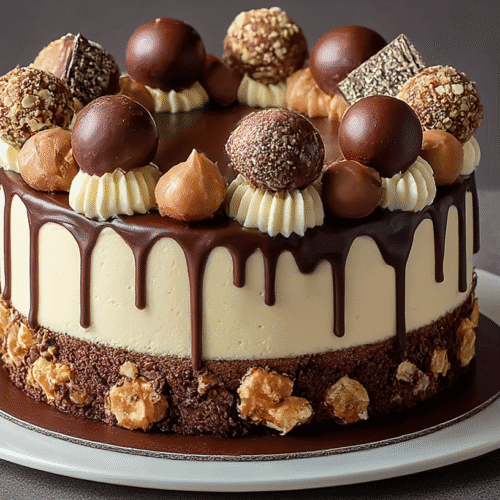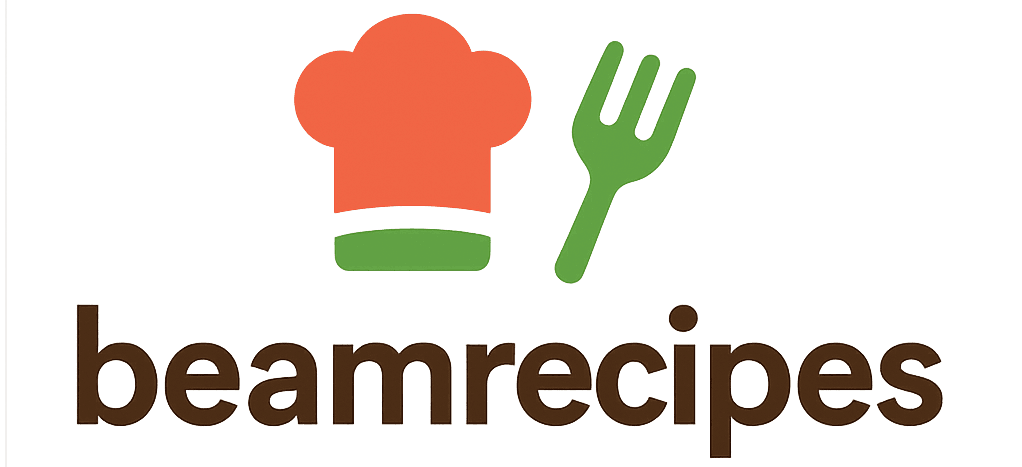Chocolate Cake Designs have always been close to my heart, not just as recipes but as memories made sweeter around the table. Hi, I’m Amanda. Cooking has been my safe place, my way of pouring comfort and connection into the lives of those I love. That’s why I created BeamRecipes—a space filled with approachable recipes that work in real life. I believe baking and decorating shouldn’t feel intimidating; they should feel joyful. Each cake, each dish, carries a story, and here, I share mine with you so we can create moments of warmth, love, and celebration together.
Why Chocolate Cake Designs Matter
Celebration and Memory
A chocolate cake isn’t just dessert—it’s a centerpiece that ties people together. Designs turn a simple bake into a memory, whether it’s for a birthday, anniversary, or quiet Sunday.
Confidence in the Kitchen
Decorating gives you a sense of accomplishment. Even if you’re not a baker, small touches like drizzles or chocolate curls make the cake feel bakery-worthy.
Flexibility for Any Occasion
From minimal rustic cakes to glamorous layered creations, designs can be adapted for casual gatherings or formal events.
A Treat for the Eyes
We eat with our eyes first. A well-designed chocolate cake builds excitement before the first bite.
Ingredients with Tips
- 2 cups all-purpose flour
Sift the flour first for a lighter, fluffier cake. - 1 cup unsweetened cocoa powder
Choose a dark, high-quality cocoa for richer flavor and color. - 2 cups sugar
Reduce by ½ cup if you prefer a less sweet cake. - 1 cup milk
Use warm milk to help the batter blend smoothly. - ½ cup vegetable oil
Oil keeps the cake moist and soft even after baking. - 3 large eggs
Bring eggs to room temperature for better mixing. - 1 teaspoon vanilla extract
Vanilla balances flavors and softens any eggy taste. - 2 teaspoons baking powder
Tip: Don’t overuse or the cake may rise too fast and sink. - ½ teaspoon salt
A little salt sharpens the chocolate flavor and balances sweetness.
Substitutions
White sugar can be swapped with brown sugar for a deeper flavor.
Milk can be replaced with buttermilk or almond milk.
Vegetable oil can be swapped with melted butter, though texture will be denser.
Cocoa powder can be replaced with 3.5 oz melted dark chocolate.
Decorating Instructions
Step 1: Bake and Cool
Bake your favorite chocolate cake recipe and let it cool completely. This prevents frosting from melting.
Step 2: Smooth Base Layer
Apply a thin crumb coat of frosting to lock in crumbs, then chill for 20 minutes. This makes the final layer smooth.
Step 3: Add Texture
Spread a final layer of frosting and use a spatula or comb tool for texture—swirls, waves, or straight lines.
Step 4: Garnish with Chocolate
Shave chocolate curls or drizzle melted chocolate over the top for instant beauty.
Step 5: Accent with Extras
Top with berries, edible flowers, or gold leaf depending on the occasion. These touches make the cake feel dressed up.
Step 6: Personalize
Add a message with piped frosting or stenciled cocoa powder for birthdays or holidays.
Why These Designs Work
Visual Balance
Combining smooth frosting with textured accents creates visual harmony.
Flavor Harmony
Rich chocolate pairs well with bright fruit or creamy toppings.
Ease for Beginners
Even simple drizzles and sprinkles give an impressive finish without advanced skills.
Flexible Techniques
The same cake can be rustic, elegant, or playful depending on garnishes.
Kid-Friendly Fun
Children love adding sprinkles or candy—it becomes a shared memory, not just dessert.
Variations for Real Life
Rustic Drip Cake
Pour ganache down the sides for an artistic “drip” look.
Garden Party Cake
Top with fresh strawberries, raspberries, or edible blossoms.
Festive Holiday Cake
Decorate with crushed peppermint, powdered sugar, or tiny ornaments.
Minimalist Style
Smooth dark frosting with a single garnish like a chocolate shard.
Surprise Inside
Hide sprinkles or fruit inside for a playful cut.
Common Mistakes to Avoid
Frosting Too Warm
If your frosting is even slightly warm, it will slide right off the cake and make decorating frustrating. Always chill your cake layers first, and keep frosting at a cool room temperature. If the room is hot, place your frosting in the fridge for 10 minutes, then whip it again before spreading.
Skipping the Crumb Coat
A thin crumb coat locks in all the loose crumbs and gives your cake a smooth base. Skipping this step often leads to a messy finish where crumbs peek through. Chill the cake for at least 20 minutes after applying the crumb coat for best results.
Overloading Toppings
It’s tempting to pile on candy, sprinkles, or fruit, but too much weight can cause the cake to sink or collapse. Stick to a few well-chosen decorations that match your theme, and space them out for balance.
Cutting Too Soon
If you slice before the frosting has time to set, the edges will smear and the design may lose its clean look. Let the cake rest for at least 30 minutes after decorating before serving.
Using Cold Cake Layers
Some think decorating on cold cake makes it easier, but layers that are too firm can crack while spreading frosting. Aim for slightly chilled—not frozen or rock hard.
Not Leveling Layers
Uneven layers can make your cake tilt. Use a serrated knife or cake leveler to even out each layer before stacking.
FAQ on Chocolate Cake Designs
How do I keep designs neat?
Chill cake layers before frosting, and always work with tools at room temperature. A bench scraper helps smooth sides, while parchment paper underneath the cake can catch stray frosting.
Can I decorate in advance?
Yes. You can frost the cake up to 2 days ahead and store it in the fridge. Just add fresh fruit, flowers, or delicate toppings right before serving to keep them looking vibrant.
What if I don’t have piping tools?
No piping bag? No problem. Use a zip-top bag, snip a small corner, and you have a makeshift piping tool. For rustic looks, even a spoon or butter knife can create beautiful swirls.
Which frosting works best?
Buttercream is the easiest to work with and holds shape well. Ganache gives a glossy, rich finish. For lighter options, whipped cream frosting works, but it’s best used right before serving.
How do I keep chocolate decorations from melting?
Always handle chocolate with clean, dry hands and avoid direct sunlight or warm rooms. Store chocolate curls or shards in the fridge until you’re ready to place them.
What’s the simplest design for beginners?
A smooth buttercream finish with a drizzle of ganache down the sides (“drip cake”) looks impressive but requires minimal skill.
Final Encouragement
You don’t need bakery training to design a chocolate cake that delights. Whether you add a swirl of frosting or scatter some berries, the love you put into decorating shines through. Cakes aren’t about perfection—they’re about joy, celebration, and the warmth that comes when people gather around something you made with care.

Chocolate Cake Designs
Equipment
- Mixing Bowls
- Mixer
- Cake Pans
- Wire Rack
- Spatula or Cake Comb
Ingredients
Main Ingredients
- 2 cups all-purpose flour sifted
- 1 cup unsweetened cocoa powder dark, high-quality
- 2 cups sugar reduce by ½ cup for less sweetness
- 1 cup milk warm
- 0.5 cup vegetable oil
- 3 large eggs room temperature
- 1 tsp vanilla extract
- 2 tsp baking powder
- 0.5 tsp salt
Instructions
- Bake your favorite chocolate cake recipe and let it cool completely before decorating.
- Apply a thin crumb coat of frosting to lock in crumbs. Chill for 20 minutes.
- Spread a final frosting layer. Use a spatula or comb tool for texture like swirls, waves, or lines.
- Add chocolate curls, shavings, or drizzles as garnish.
- Top with extras such as berries, edible flowers, or gold leaf depending on the occasion.
- Personalize with piped messages or stenciled cocoa powder for birthdays or holidays.

